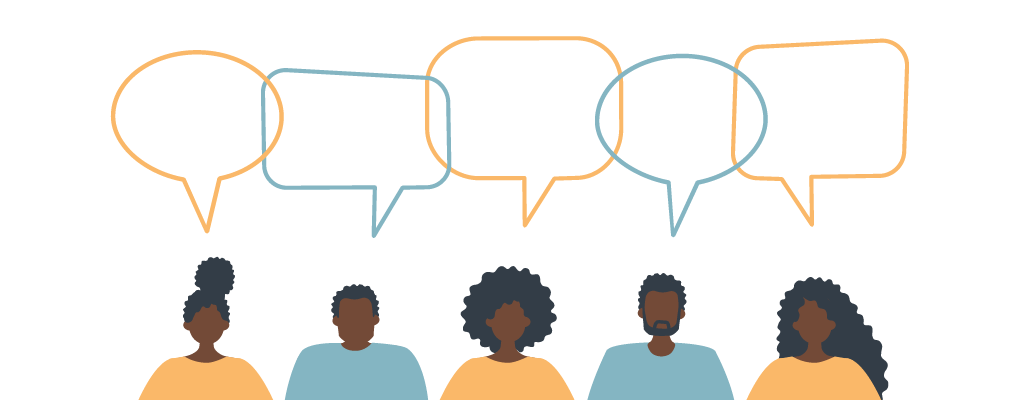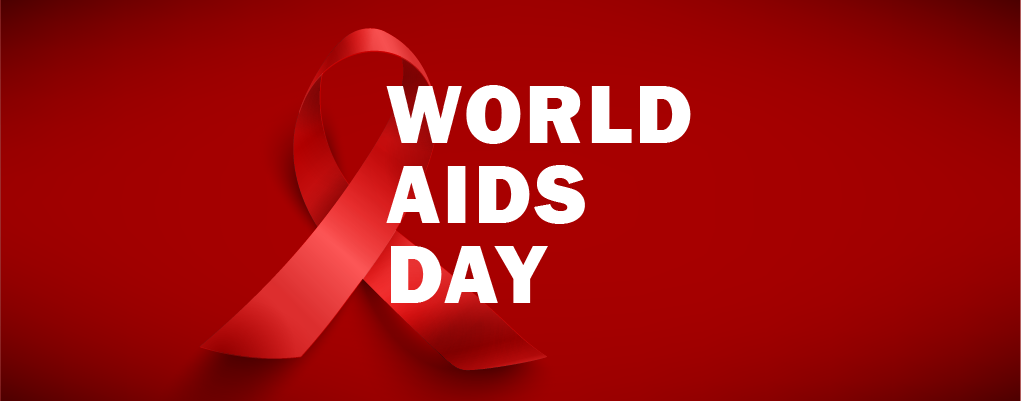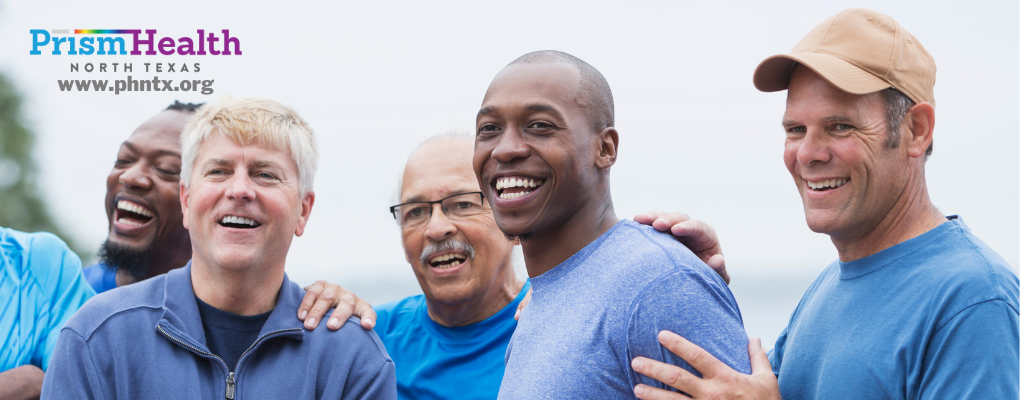
A few weeks ago, I hosted a video/podcast episode on HIV stigma and how it affects the Black community — one of my communities I am proud to be a part of (Afro-Hondureñx over here). I was joined by a couple of my coworkers here at Prism Health North Texas and an HIV activist within the Dallas Black community (thank you, Devon, Ted, and Lionel). They are all working tirelessly to fight against HIV stigma and its profound consequences.
In preparation for this episode, I spent weeks — yes weeks– preparing outlines, redoing outlines, reshaping questions, listening to other podcast hosts, and just rehearsing all the possible ways the conversation could go. Clearly, it is evident that I was suffering from some serious imposter syndrome and control issues, but that is neither here nor there. This conversation held so much weight and power in my mind that I could not help myself but obsess over it. I truly wanted this conversation to go the way I wanted because I thought I knew best (let’s call it for what it is) and that there was no way, other than mine (obviously), that would achieve the best result. I wanted viewers and listeners around Dallas to literally say to themselves A-ha or Let me change all my behaviors magically overnight. Cue the dogmatism, elitism, and light-skinned privilege — I am Black and light, so you already know.
From the very first question I asked the guests, I realized this episode was headed towards unplanned territory, despite my efforts to outline the discussion. It was giving me severe perspiration and panic AND creating an opportunity for me to practice intentional listening. I realize now that my plan for the episode was not what needed to happen. The experience forced me to remember to stay teachable. It also guided me to remember to make space for voices that are not mine — voices that have the first-hand experience of the topic and are more deeply affected by HIV/STI stigma than I am. Remembering to stay present made all the difference. Thank you, therapy and community guidance!
In the process, I was able to let go of my ego and pride and allowed myself to open up to the possibility of growth and learning. I found myself completely disturbed by how embedded and corrosive HIV stigma is for our Black community, how it started (institutions and structures that hold the most power… more on this in another post!), and how much it still affects the well-being of Black folxs. My list of reasons why HIV stigma still exists felt so heavy, draining, and almost irreparable with every minute that passed by. I heard words like “HIV criminalization,” “respectability politics,” “institutional racism,” and “gatekeepers.” But what stood out the most to me was the comparison of HIV stigma to the layers of an onion.
There are root problems based on the intersectionality of capitalism, racism, sexism, transphobia, homophobia, elitism, etc. And then there are all the problems surrounding the first inner layers. By the end, you have this compact, hard, and heavily layered set of problems all connected to the stigma we experience around HIV and STIs. After listening to the comparison, the level of overwhelming sensations that coursed through my body then took over my mind, and the flood of thoughts started.
How are we supposed to take apart the onion? How are we supposed to disrupt policies that hold so much power? How are we as professionals going to give our patients everything they need to have healthy sexual lives?
Overwhelmed much? No, just me? I decided to put the anxiety aside and asked the guests, “So now what? What do we do to help our patients now?” The responses were everything.
We can only address one thing at a time and address the things that are within our power. As professionals at Prism Health North Texas, we can offer our part — equitable, compassionate, and honest care. We can honor pronouns and identities, listen and validate different life experiences, and check our own stigmas and prejudices that exist in all of us. We can continue to learn, unlearn, and heal.
This conversation was everything it needed to be, without my own outlined agenda. Accordingly, I am completely powerless over most things in the world, but this conversation reaffirmed the power of interpersonal work and honest self-realization. By knowing my own discomfort, I could make space for expansion outside of my ego.
Learn more about HIV stigma.



